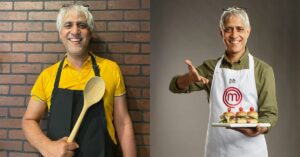‘Why I Quit My Investment Banking Job to Sell Thousands of Idlis With my Mom’
Krishnan Mahadevan runs Iyer Idly in Bengaluru with his mother Uma. Established by his father in 2001, it sold only idli and chutney for almost two decades.
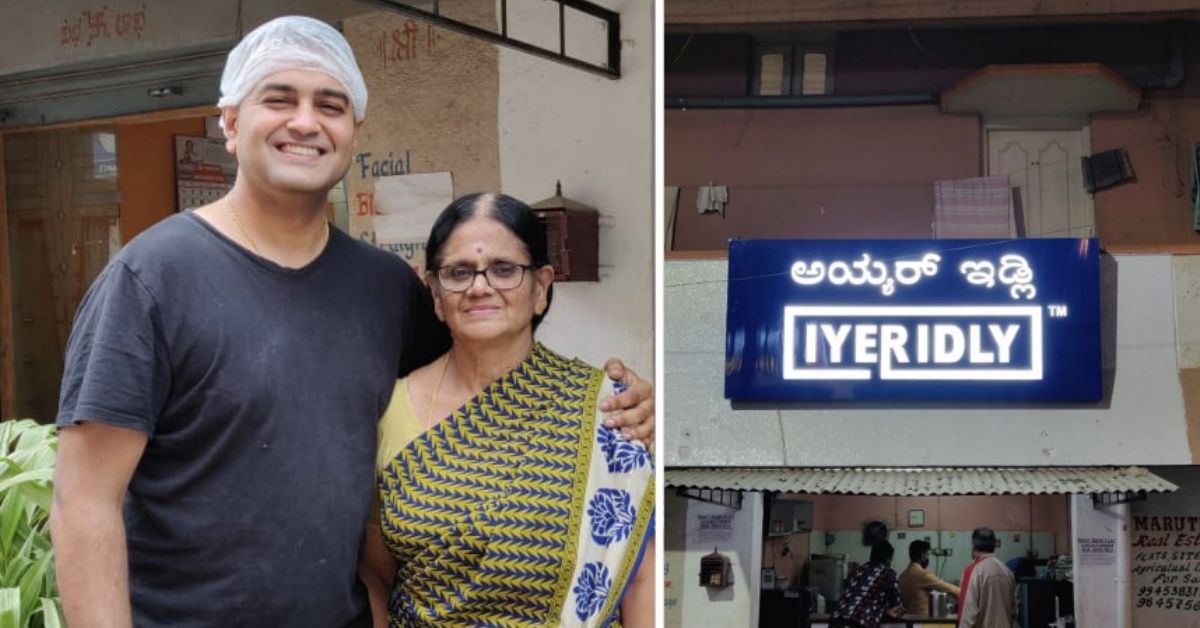
With approximately 1.5 tonnes of rice and 1 tonne of urad dal used every month, Iyer Idly in Vignan Nagar, Bengaluru, operates out of a 200 sqft space to churn out thousands of idlis each day.
From 2001 when Iyer Idly was established, the growth so far has been close to 100x says Krishnan Mahadevan, owner Iyer Idly, while speaking to The Better India. What’s interesting is how this outlet managed to survive for 19 years by selling just two items – idli and chutney.
“Iyer Idly was born out of a necessity to stay afloat,” says Krishnan.
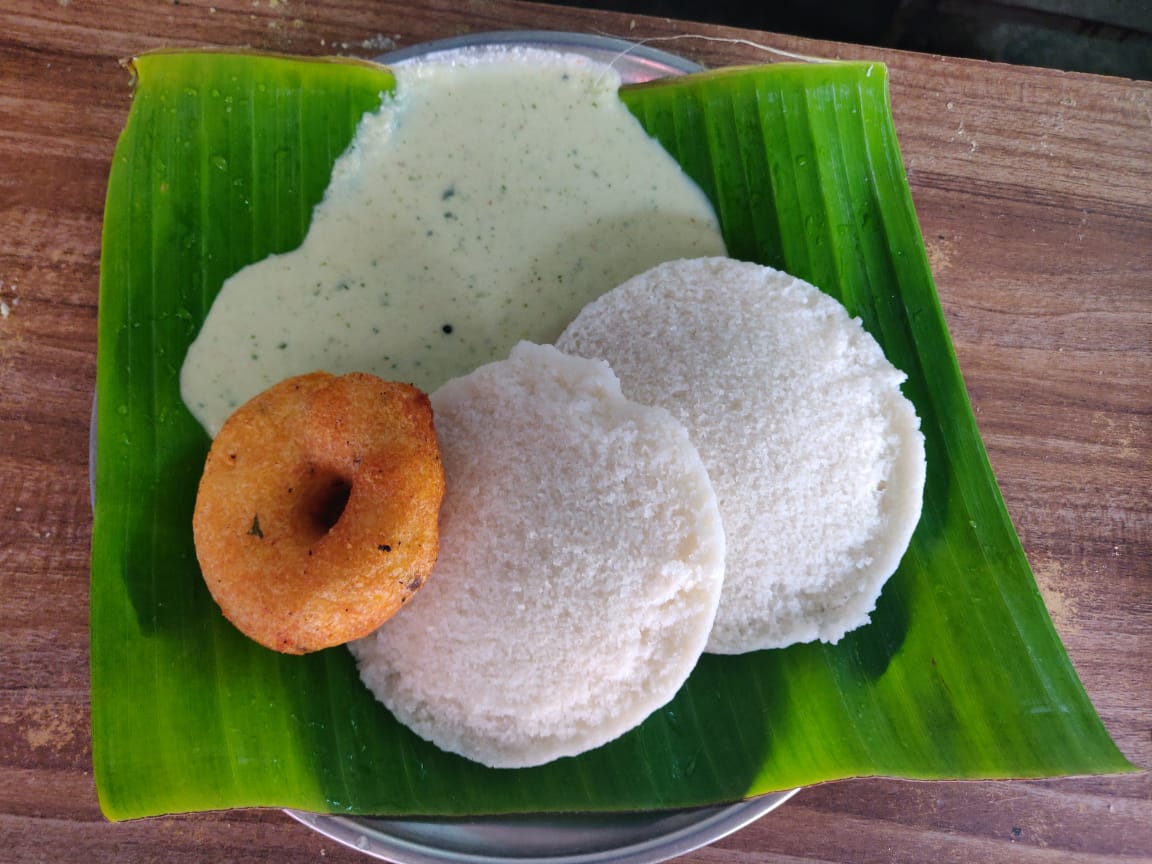
It was never about making a mark in the food industry or becoming an entrepreneur. Krishnan’s father, Mahadevan, lost his job in 2000 and that was when he started selling idli batter to shops in the neighbourhood.
“I was all of 10 at that time but remember waking up early to help supply the batter to shops nearby. It was tough. There were five of us at home, including my sister and ailing grandmother, who were dependent on the money that selling the batter brought home,” he says. Krishnan describes his childhood as one that came with many responsibilities.
Soon people started suggesting that the Iyer’s should start selling idlis rather than just the batter. That was perhaps how on 27 September 2001 Krishnan’s father set up the outlet in Bengaluru.
While Uma Devan, Krishnan’s mother, would make the batter and the idlis, Mahadevan ran the outlet.
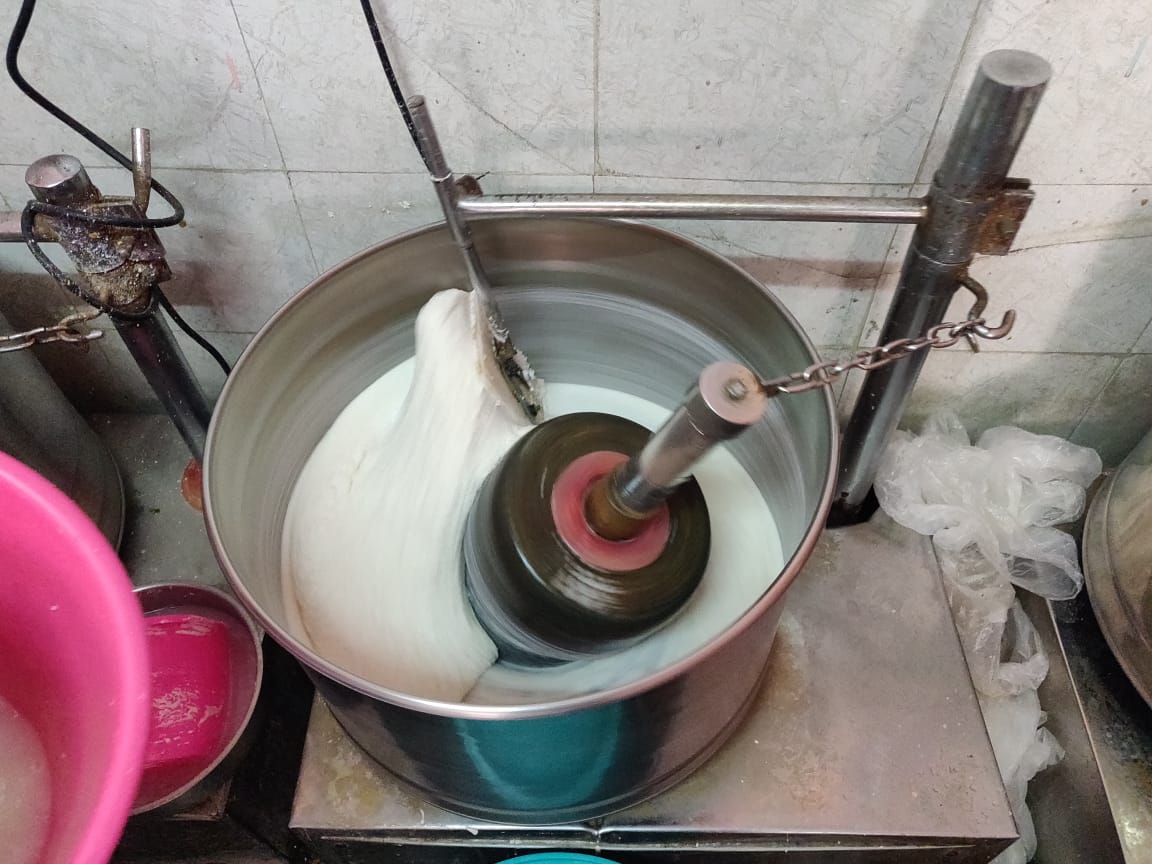
It was not all smooth sailing – it took them many months to establish themselves and Krishnan recollects how the business would not make more than Rs 40 a day after all expenses were deducted. “That would amount to just about Rs 1,200 a month. It was crazy and now looking back I wonder how we managed amidst all this,” he says.
“I remember working right from when I was in school and that has continued till date,” he adds. Watching movies, hanging out with friends, etc. did not feature in Krishnan’s childhood. Instead, he spent time at the shop, attended college, went back to the shop every evening and called it a night thereafter. “My focus was very different and through it all, I managed to complete my under graduation and post-graduation as well,” he says.
Krishnan started his career as a professor at St Joseph’s College of Commerce, post which he joined Goldman Sachs in the investment banking team and went on to spend four years there. Until March 2009, the year Krishnan’s father passed away, the business was managed by his father. “After his demise, I started juggling work at Goldman Sachs and the business. I did that to be able to help my mother who was working at the shop,” he says.
‘But my mother did not want me to join the business.’
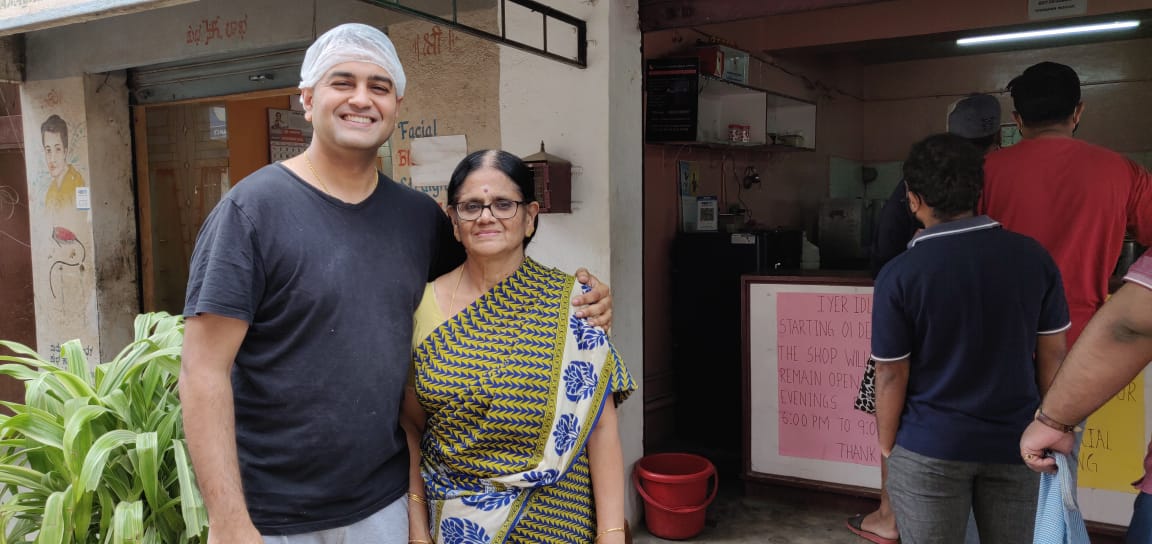
“One of the biggest concerns she had was how she would justify my working at the shop to a prospective bride,” says Krishnan. In her opinion, justifying a corporate career after having studied so much was important. He adds, “However, what this did was leave me with no time for anything other than work and the shop.”
While Krishnan broached the subject of joining the business full time and giving up his corporate job, his mother was not convinced. “It took me almost one year to get her to see my point of view. I was patient with her and did not at any point try to oversell my case. What helped was the lockdown – that was when my mother saw how busy I was through the day. I would constantly be on calls and even stepping away to have lunch was difficult,” he says.
“Seeing the kind of work I was putting in, she felt I would be better off managing my own business and getting some time off as well,” he adds. The decision was not easy and Krishnan says it involved tears, a little bit of heartache and a lot of communication. “I was very sure of wanting to only sell idlis. It just took time to do it full time,” says Krishnan.
Subsequently, Krishnan put in his papers and since December 2020, he has been part of Iyer Idly full time.
‘Making idli is an art’
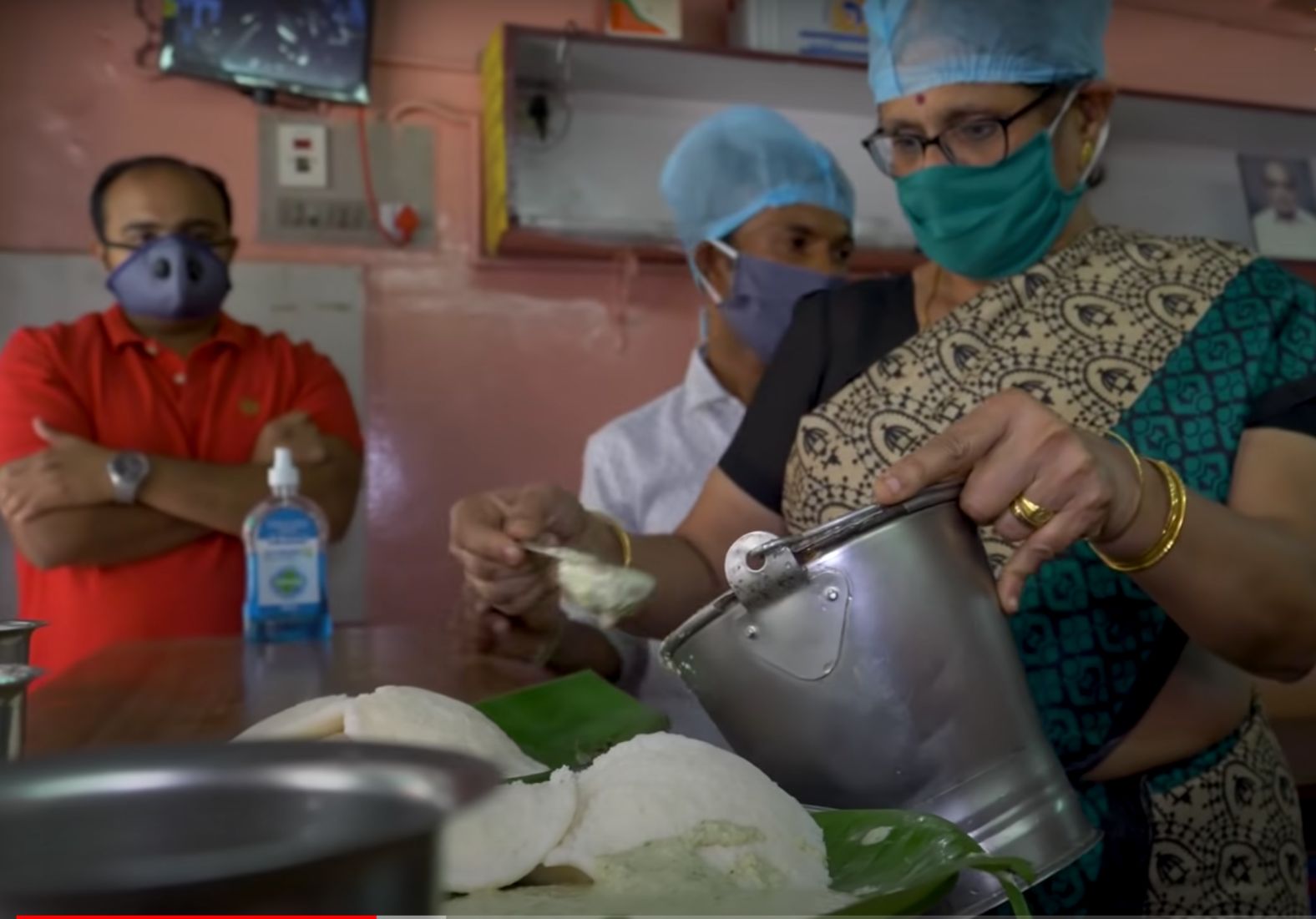
“There is a technique for making fluffy idlis,” says the idli expert, Uma. “We ensure that we follow the same process every day — whether it is soaking the rice and urad dal for the batter or the amount of time we allow the batter to ferment. We have come up with this process after several trials and errors,” she adds.
The idli batter is prepared the previous night so it remains fresh. The batter is poured into the idli trays, which are lined with a muslin cloth. This is then placed inside a steamer for not a second more than 12 minutes.
If one were to walk in and ask for the recipe, Uma is not one to shy away from divulging it. She says, “What is the big secret in this?” Her pro tip to those looking to make fluffy idlis at home is to use a (stone) grinder to make the batter rather than a mixie.
The Iyer’s were so confident of the idlis that were being made and sold that for close to 19 years that they only focused on selling that one dish. “We never added anything else to the menu. One could only get idli and chutney at the shop. It was only two years ago that we added vada, kara bhat and kesari bhat to our menu on popular demand,” says Krishnan.
While the outlet is open for business by 6.30 am every morning, work starts at 4 am. The morning slot is open until 11.30 am and they are ready for the evening slot by 6 pm. Even today one can get a meal of three idlis and unlimited chutney for Rs 30. Krishnan adds that the idea is to keep it as affordable as they can. “For close to seven and a half years there has been no increase in the prices.”
“We ensure that we keep the idli price at Rs 10 despite the increase in rentals, fuel and cost of salaries,” he says.
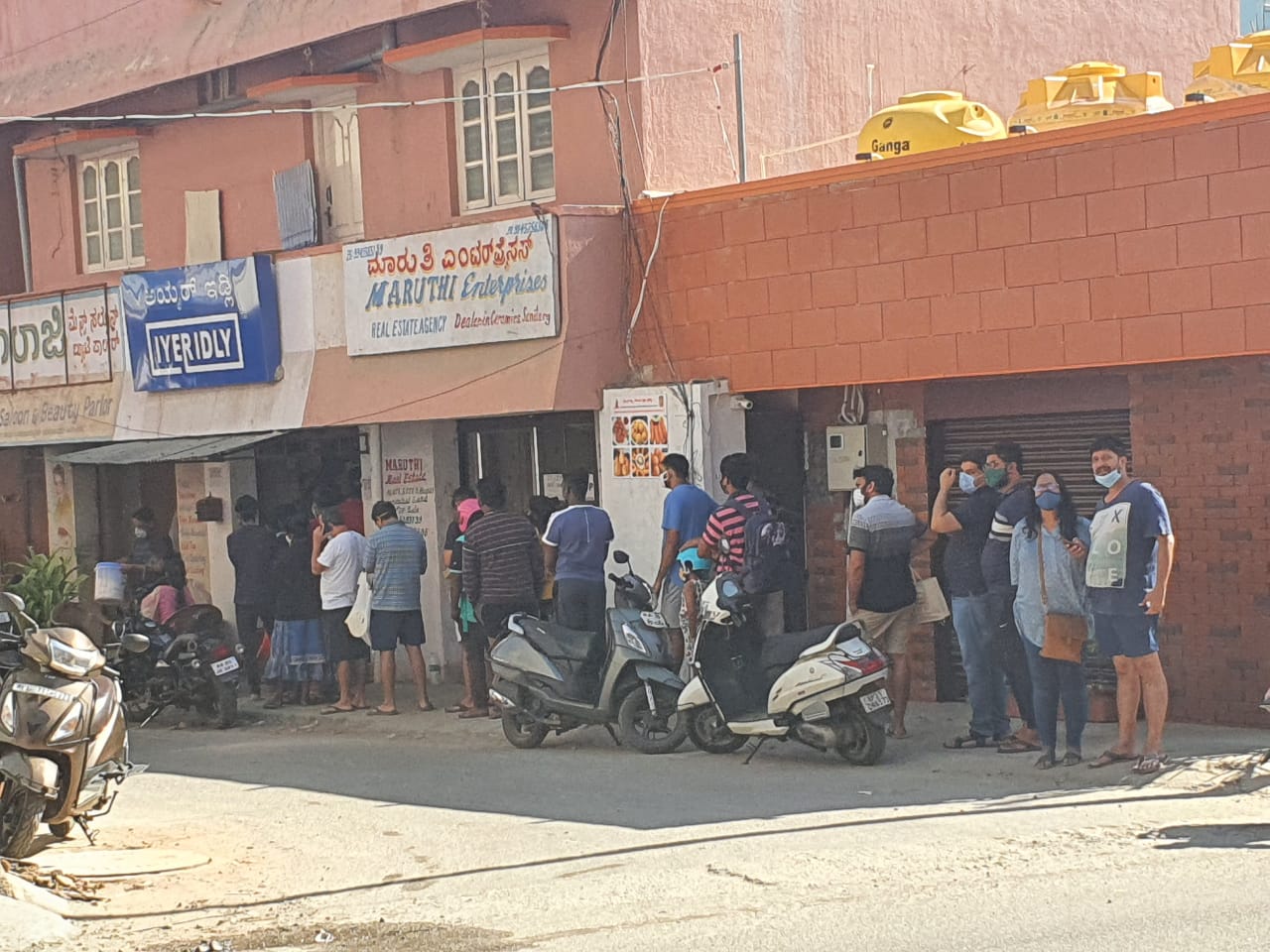
Shweta, a resident of Electronic City, which is approximately a 45-minute drive from Vignan Nagar, says, “I come all the way just to have these idlis. I come here at least once every 15 days. I also tried making these idlis at home but it is next to impossible to get the same taste in the homemade idlis.”
Yet another customer, Vikas, a resident of Bengaluru, says, “When my mother was visiting from Kolkata I brought her here and she loved the idlis. Now when I am visiting her in Kolkata she has requested that I carry some of these idlis back for her.”
While Iyer Idly continues to operate out of the 200 sqft shop in Benagluru the one thing that Krishnan says is that no matter when you walk into the shop, the taste of the idli will never disappoint you. “We have not invested to beautify the façade of the shop but we continue to focus on making hygienic and fresh food every single day. That is why our customers keep coming back,” he concludes.
(Edited by Yoshita Rao)
This story made me
- 97
- 121
- 89
- 167
Tell Us More
We bring stories straight from the heart of India, to inspire millions and create a wave of impact. Our positive movement is growing bigger everyday, and we would love for you to join it.
Please contribute whatever you can, every little penny helps our team in bringing you more stories that support dreams and spread hope.






